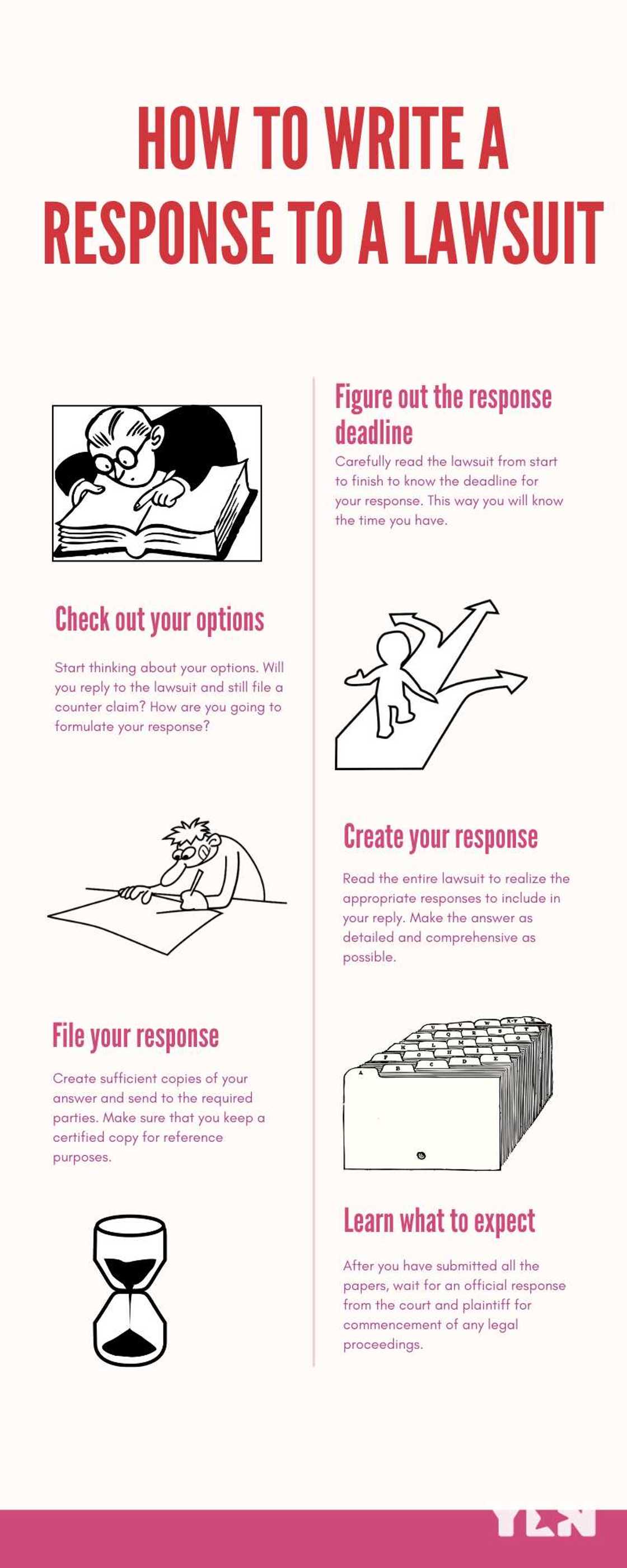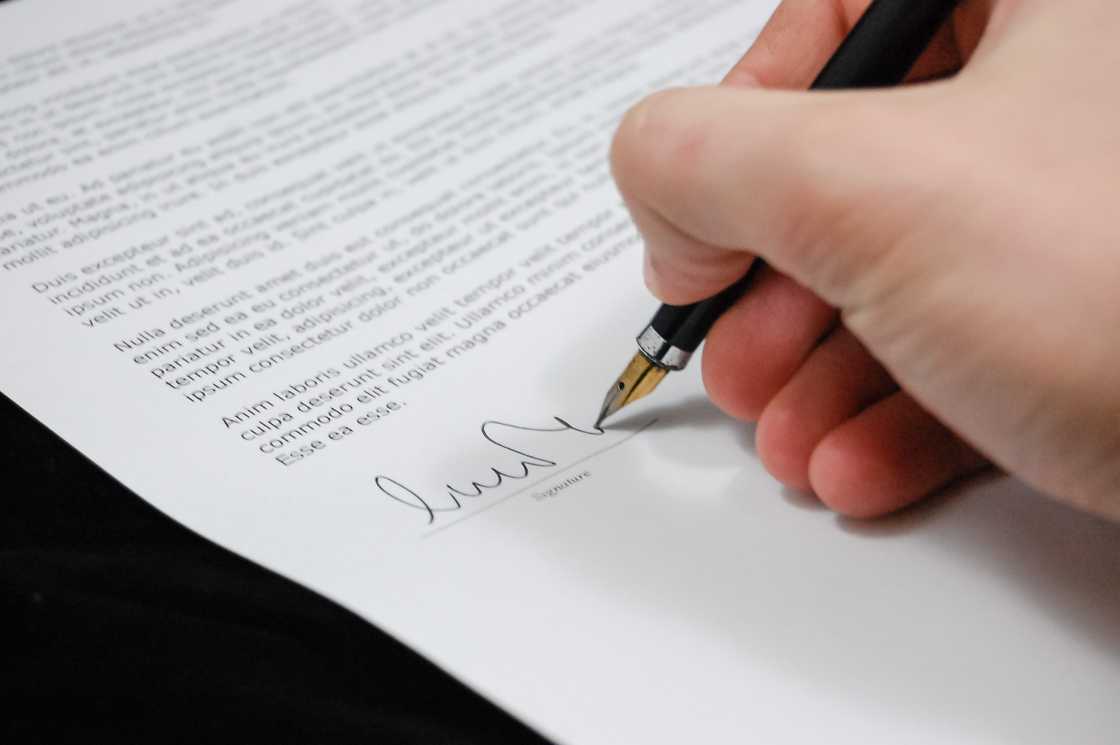How to write a response to a lawsuit
Lawyers’ jargon is hard to comprehend for most individuals without legal training. And if reading and interpreting such words is daunting; do you think you can comprehensively respond to a lawsuit? This complicated turn of events is a profound torment to many people who have a suit against them. Being on the receiving end of a lawsuit is not a pleasant encounter, and you cannot afford to allow your emotions to get the better of you. At this point, the primary thing is to get lawyered up, but what if you have none to rely on? Learning how to write a response to a lawsuit will allow you to comprehend the position you are in and respond satisfactorily. After all, you cannot afford to ignore the suit – it will be an expression of guilt.

Source: Original
Are you wondering how to respond to a summon? Sure, legal matters are a preserve of professionals that are intellectually endowed to navigate the complicated legal world. However, when you do not have a lawyer, it is integral that you file your response as fast as possible.
Remember, ignoring a lawsuit doesn’t make it disappear, so you better have a written answer to the court in time to avoid further legal complications. Since summon responses depend on the facts of the case, a creative and conclusive reply demands vast knowledge and learning is very important.
What is a lawsuit?
A lawsuit usually happens when one party sues another in a civil legal action. In this case, the party can be a person, business, or corporation. The individuals filing the lawsuit and suing the other party is the plaintiff, while the party being sued is the defendant.
The plaintiff might claim to have incurred loss because of the defendant's action and demand a legal or equitable remedy. The summon is the beginning of this legal process where the plaintiff states the matters of the case. The defendant or the accused is meant to respond to the plaintiff's claim.
When the plaintiff is successful in the civil lawsuit, they are awarded compensation for the harm emanating from the defendant's action. The case can also go in the opposite direction, where the defendant wins, and the plaintiff's demands are dropped by the court. Everything starts when you write a written response for a lawsuit.
Therefore, the answer to a complaint regarding a civil suit is integral to challenging the case in court. If you do not answer a court summons, the court might grant a default judgment against you.
How to write a response to a lawsuit
Like everything else, lawsuits have a beginning, and it all starts with the summon you receive. Unfortunately, the summon doesn't come with a "fill in the blanks" or "tick" to accept or reject. You ought to be creative in your response's diction and give a comprehensive answer to a lawsuit where you are the defendant.
With simple steps, you can learn how to write a response to a lawsuit and make the legal process less complicated from the beginning. So, how does one do it?
1. Figure out the response deadline
Any response letter to a lawsuit ought to be done within the stated time frame. After receiving the lawsuit, keep the deadline in mind as you are figuring out how to structure your response.
Typically, you will have certain calendar days depending on the date you received the summons. In most cases, the days of service are excluded from this period. Ascertain that you carefully read the summons to grasp all the pertinent details.
2. Check out your options
Even though a court summons might possess profound claims and the plaintiff going for a costly settlement, it does not mean that all will be realized. Therefore, before creating a written answer to the court, evaluate your options.
Should you negotiate a resolution or file an answer? Is it a good idea to file a motion to dismiss or even sue the plaintiff? Maybe the allegations in the summons are so vague that you can choose to do nothing. Recall that all actions have consequences and are termed as valid responses to the lawsuit.
READ ALSO: Ace Ankomah sues social media commentator Kevin Taylor for defamation
3. Create your response

Source: UGC
If you choose to file an answer, an example of a written answer to a summons might be of great help. It will offer you with the appropriate rubric to structure your reply with all the critical information well-expressed.
Some details are crucial when you are composing your answer:
- Name of the court and region.
- The identity and address of the individual or party who is suing you. (plaintiff)
- Your name and address.
- The case number and judge’s name.
Of course, reliant on the case's unique circumstances, you might have to include more content to identify the case accurately. Therefore, be very careful when you are reading the summon as it will give you sufficient information on how to compose your response.
You can compose a general denial, but the legal circumstances also vary, and, in some instances, you will be required to respond to every fact in the complaint. This means admitting or denying every numbered paragraph in the lawsuit.
4. File your response

Source: UGC
After you have completed your response and appended your signature, it is time to file the response in court. Ascertain that you make copies of the written answer to the court. You will give one to the plaintiff and the other to the court.

Read also
The top, most-efficient tips to follow when writing a query letter in Ghana (samples included)
In certain circumstances, a defendant does not have to file their answer to the prerequisite court physically but can send it electronically. Ascertain that you keep copies of the answer as proof that you submitted the response letter to the lawsuit. It is like your receipt.
5. Learn what to expect
How you compose your response letter to a lawsuit will determine the proceeding steps. If you filed a response and a counterclaim, the plaintiff would submit a reply, and the case will move forward.
Other circumstances will warrant a different move; therefore, make a wise decision when replying. Of course, the court will update you on the progress of your case and party filling the civil litigation will inform you if they require more paperwork.
It is integral to know how to write a response to a lawsuit as it will be important when you are facing legal troubles. You might have a civil case when you are financially unstable and cannot afford the services of a legal representative. Here, when armed with such vital information, creating a formidable response will allow you to answer a court summons.
READ ALSO:
- Rick Ross's baby mama Briana Camille files paternity and child support lawsuit against the rapper
- Ben Brako to sue Ambolley over MUSIGA money allegations
- Vanessa Bryant sues company that owned helicopter which killed hubby Kobe, daughter
Source: YEN.com.gh





